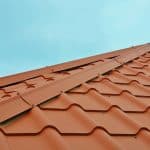Exploring Epoxy Flooring Options: Showroom Visit Guide
Epoxy floors have an enticing variety of colors, textures, and finishes that promise both durability and design versatility. This allows homeowners and business owners to make their floors a statement piece that showcases personal style or brand identity. High-traffic areas need a floor that can handle heavy use, resist damage, and meet regulatory standards. For

Epoxy floors have an enticing variety of colors, textures, and finishes that promise both durability and design versatility. This allows homeowners and business owners to make their floors a statement piece that showcases personal style or brand identity.
High-traffic areas need a floor that can handle heavy use, resist damage, and meet regulatory standards. For that reason, epoxy flooring has gained widespread acclaim in commercial and industrial spaces.
Visit a Showroom
If you’re in the market for a new flooring solution, it’s important to consider all your options or to navigate to their showroom with ease. Taking the time to learn about the different types of epoxy floor coatings can help you narrow down your choices and make an informed decision that will meet your needs. There are many benefits to choosing an epoxy floor, including their durability and longevity. Additionally, they are easy to clean and can withstand a variety of conditions, such as high temperatures and heavy traffic.
Visiting a showroom can be an excellent way to see the many options that are available for your space. Before you go, it’s a good idea to identify your goals for the visit so that you can get the most out of your experience. Setting clear goals can also enable the sales team to provide guidance that best suits your objectives.
Epoxy is an adhesive that uses resins and hardeners to create a durable, long-lasting surface for your flooring. It can be used in various commercial and industrial applications, including garages, showrooms, and warehouses. Its durability and low maintenance costs make it an attractive option for any space. Additionally, it is highly resistant to chipping, scratching, and stains.
Standard epoxy floor coatings are a popular choice for commercial spaces, as they can be applied to existing concrete and provide a high-quality finish. These coatings are typically made from a two-part mixture of resin and hardener, which creates a strong and durable surface when cured.
There are several factors that can affect the success of your epoxy flooring project, including substrate condition and preparation, application, and curing. To ensure that your flooring will be successful, it is important to follow all specified instructions and to take precautions to avoid causing damage or injury.
Flake epoxy flooring is an attractive and durable option that can be customized to match your style and aesthetic preferences. This type of flooring is created by adding acrylic flakes in a wide range of colors to the epoxy mixture before it is spread and rolled onto the floor. The flakes add texture and color to the floor, creating an eye-catching appearance that is perfect for showrooms, school cafeterias, and lobbies.
Talk to a Sales Representative
When it comes to flooring, there are many options that can be utilized in residential, commercial, and industrial spaces. From carpets and tiles to hardwood floors and vinyl, each has its own benefits and drawbacks. However, one type of flooring that is gaining in popularity is epoxy flooring. Unlike traditional flooring materials, epoxy offers durability and visual appeal that sets it apart from the rest of the competition.
One of the main reasons that epoxy is a popular option for flooring is its low maintenance requirements. Unlike carpet, which can harbor dirt and stains, and tile, which can collect grime in the grout lines, epoxy is seamless and non-porous. This makes it incredibly easy to keep clean, and a simple sweep or mop is usually all that is needed to maintain its appearance. Additionally, epoxy is resistant to chemicals, making it a good choice for spaces that may experience spills and other chemical damage.
Epoxy is also a great choice for environments that will see heavy use, as it can withstand impacts and other heavy machinery without cracking. Additionally, it is a good option for spaces that may be exposed to weather conditions like rain or snow. Epoxy is also a good choice for areas that are prone to flooding, as it creates an impenetrable seal that protects the floor from water damage.
There are many different types of epoxy flooring, and each has its own advantages and disadvantages. Self-leveling epoxy is ideal for creating a smooth, sleek finish, while mortar epoxy is perfect for high-traffic areas. Decorative epoxy is another popular option, as it can be used to create unique designs that can add visual appeal to any space.
Regardless of which type of epoxy flooring you choose, it is important to understand how the product will be installed before making your decision. For example, some types of epoxy emit strong fumes during installation that can be harmful if inhaled. Additionally, some epoxy products have a short working time and must be applied immediately after mixing.
If you are considering epoxy for your home or business, talk to a representative at a showroom to learn more about the options available. They will be able to explain the process and help you find the right product for your space.
Ask Questions

Whether you’re shopping for resin epoxy, polyurea, or another concrete coating, it’s important to ask the right questions. This will help ensure that you’re getting the best value for your money and a flooring solution that’s perfectly suited to your needs and preferences.
High-traffic areas are places of constant interaction and movement, which require a durable surface that withstands stress, impacts, and chemical spills while remaining safe to walk on. Epoxy floors are an ideal choice for crowded spaces, as they provide an unmatched level of durability and versatility. They also offer a range of other benefits that make them the clear choice for crowded environments, including their easy maintenance and customizable aesthetic.
Epoxy floors come in a range of colors, designs, and textures, allowing you to create the perfect look for your space. For example, a solid color finish is popular for garages and basements, while flake epoxy offers a unique marbled effect that’s perfect for commercial spaces that want to stand out from the competition. Additionally, epoxy can be applied with anti-slip agents for additional safety in crowded areas.
Aside from its durability and aesthetics, epoxy flooring is an affordable option that can improve the resale value of your home or commercial property. It’s also environmentally friendly and requires less maintenance than other flooring options. Additionally, epoxy is easy to clean and resistant to moisture and stains.
Choosing the right type of epoxy floor for your space will depend on a range of factors, including the size of your space, the current state of your concrete, and your budget. It’s important to discuss your options with an expert and choose a type of epoxy that will be durable, long-lasting, and visually appealing for your space.
Resin epoxy, polyurea, and epoxy terrazzo are some of the most valuable flooring options for residential and commercial properties. Each offers superior protection against heat, chemicals, stains, and impact damage, and comes in a variety of colors and textures. However, epoxy terrazzo is a special formulation that offers even greater resistance to heat and extreme weather conditions.
Make a Decision
While epoxy is highly versatile, it’s important to communicate to your floor coating contractor what sort of aesthetic you want. This will ensure that the flooring is tailored to your specific tastes and can boost the aesthetic of any space. This is especially true in commercial spaces, where the floors are a focal point and can help boost customer perception of the company.
The smooth surface of epoxy flooring also makes it easy to clean, with dirt, dust, and spills easily wiped away. It also acts as a natural amplifier, reflecting light and brightening the space. This makes it an ideal choice for showrooms and retail spaces, and it can make a space feel more spacious and premium.
In addition, epoxy flooring is highly durable and can withstand a wide range of extreme conditions. It’s able to resist chemicals, fire, and even impact. These characteristics can make it a great choice for large warehouses, where loading bays and forklift paths need to be clearly marked.
A key factor when choosing a contractor is to find one that has experience working in your area. A local service contractor will be familiar with the unique climatic conditions in your region, which can affect how well epoxy floors hold up. They’ll be able to recommend a product that works best for your climate and can provide you with the information you need to know about how much maintenance your floors will require.
Finally, be sure to ask about the contractor’s insurance coverage. In the event that something goes wrong during the installation process, it’s important to be sure the contractor has insurance to cover any resulting damages. This will ensure that you are not held liable for any incidents.
Visiting a showroom to explore your epoxy flooring options is a great way to see what type of finish would work best for your space. There are many different textures and colors to choose from, so you can tailor your floors to match your business’s branding or to your personal style. However, it’s important to be aware that epoxy can create strong fumes during the installation process. This can be harmful to children and elderly family members, so it’s important to take precautions to protect them.









